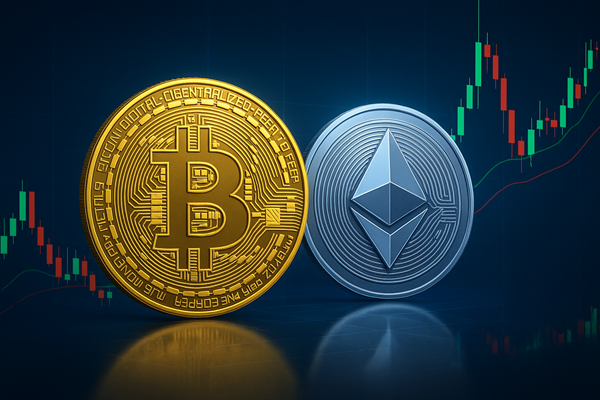Secure Crypto Wallets with Lowest Fees (2026 Guide)

Secure Crypto Wallets with Lowest Fees 2026 – Discover secure crypto wallets with lowest fees in 2026. Compare free & paid options, protect your assets & maximize profits.
Introduction
Are you tired of high fees eating away your crypto profits? You’re not alone. In 2026, security and cost-efficiency are two of the most important factors for choosing the right cryptocurrency wallet. With thousands of wallets available, how do you find one that’s both secure and low-cost?
This comprehensive guide will help you discover the best secure crypto wallets with the lowest fees, whether you’re a beginner or a seasoned trader. We’ll explore free and paid options, analyze transaction costs, and reveal how you can save more while keeping your assets safe.
Current Market Overview
The crypto wallet market in 2026 is booming, with millions of active users storing Bitcoin, Ethereum, and altcoins. Security breaches remain a concern, making multi-layer security and non-custodial wallets a top choice. At the same time, with rising transaction volumes, wallet fees (network + service) have become a deciding factor.
- Hardware wallets (Ledger, Trezor) remain the most secure but often come with upfront costs.
- Software wallets (Trust Wallet, MetaMask, Atomic) are widely used for their low or no service fees.
- Exchange wallets are convenient but carry higher withdrawal fees and custodial risks.
Historical Price Trends
Over the past few years, wallet providers have competed to lower transaction costs. In 2023–2025:
- Average Bitcoin network fee dropped by ~35% due to scalability solutions.
- Many wallets introduced fee optimization algorithms.
- Zero-fee or near-zero-fee wallets gained popularity, especially for DeFi users.
This competition led to a wallet fee war, making 2026 one of the cheapest years to transact in crypto — but only if you choose the right wallet.
Expert & AI Predictions
AI-powered predictions suggest that:
- By 2027, dynamic fee calculation will become the norm.
- Layer 2 scaling (e.g., Lightning Network, zk-rollups) will reduce network costs for major coins.
- Non-custodial, low-fee wallets will dominate 60% of the market by 2026–2027.
Experts also recommend choosing wallets that support multi-chain transactions and have a proven track record of security updates.
Key Factors Affecting the Fees
- Network Type – Bitcoin vs Ethereum vs Solana have varying network fees.
- Wallet Type – Hardware (one-time cost) vs Software (service fees) vs Exchange (withdrawal fees).
- Transaction Volume – High-frequency traders benefit from wallets offering bulk fee discounts.
- In-built Swap/Exchange – Some wallets charge higher fees for internal swaps.
- Cross-border Transfers – May include additional charges depending on the network.
Top 5 Secure Crypto Wallets with Lowest Fees (2026)
1. Trust Wallet
- Security: Multi-chain, private keys on your device
- Fees: No wallet fees, only network fees
- Best For: Mobile users & DeFi enthusiasts
2. Atomic Wallet
- Security: Encrypted keys, desktop & mobile support
- Fees: Competitive with in-built exchange flexibility
- Best For: Beginners looking for simple swaps
3. MetaMask
- Security: Non-custodial, supports hardware integration
- Fees: Network fees + minimal service charges
- Best For: Ethereum & Web3 users
4. Ledger Nano X
- Security: Hardware-grade encryption
- Fees: One-time purchase, negligible wallet fees
- Best For: Long-term investors
5. Exodus Wallet
- Security: Multi-asset, biometric authentication
- Fees: Transparent, slightly higher for swaps
- Best For: Multi-asset holders
Future Outlook (2026 and Beyond)
The future of crypto wallets lies in zero-fee or near-zero-fee decentralized solutions. Expect to see:
- AI-driven fee optimization
- More wallets integrating Layer 2 networks
- Rise of subscription-based wallets offering unlimited low-fee transfers
By 2030, we may even see fully autonomous AI wallets that choose the lowest-cost transaction routes for you.
FAQs: Secure & Low-Fee Crypto Wallets
- Which crypto wallet has the lowest fees in 2026?
Trust Wallet and Atomic Wallet currently offer the lowest average transaction fees. - Are free crypto wallets safe?
Yes, if they are non-custodial and you control your private keys. - How to avoid high withdrawal fees?
Use wallets that support native blockchain withdrawals instead of exchange wallets. - Is hardware wallet better than software for fees?
Hardware wallets have no ongoing wallet fees but require an upfront purchase. - Do crypto wallets charge hidden fees?
Some do for swaps and conversions. Always check their fee policy. - Which wallet is best for Bitcoin with low fees?
BlueWallet and Trust Wallet are popular choices. - Can I use one wallet for all coins?
Multi-chain wallets like Atomic and Exodus allow this. - Are DeFi wallets cheaper than exchange wallets?
Generally, yes — especially for frequent transactions. - Do wallets offer discounts for high-volume traders?
Some wallets have premium tiers or VIP programs. - How to choose the safest low-fee wallet?
Check for encryption, user reviews, and open-source code.
Why Choose coin-predictions.com?
- Real-time wallet fee analysis
- AI-based security scorecards
- Comprehensive crypto predictions & tools
- Free & paid plans for every level of investor
Visit coin-predictions.com today to compare wallets and save money on every transaction.
Final Words
Choosing the right crypto wallet in 2026 can save you hundreds in fees and protect your valuable assets. Focus on wallets that are secure, non-custodial, and low-cost, and you’ll be ahead of most investors.
Start optimizing your crypto journey now with the best wallets — your profits deserve it!



